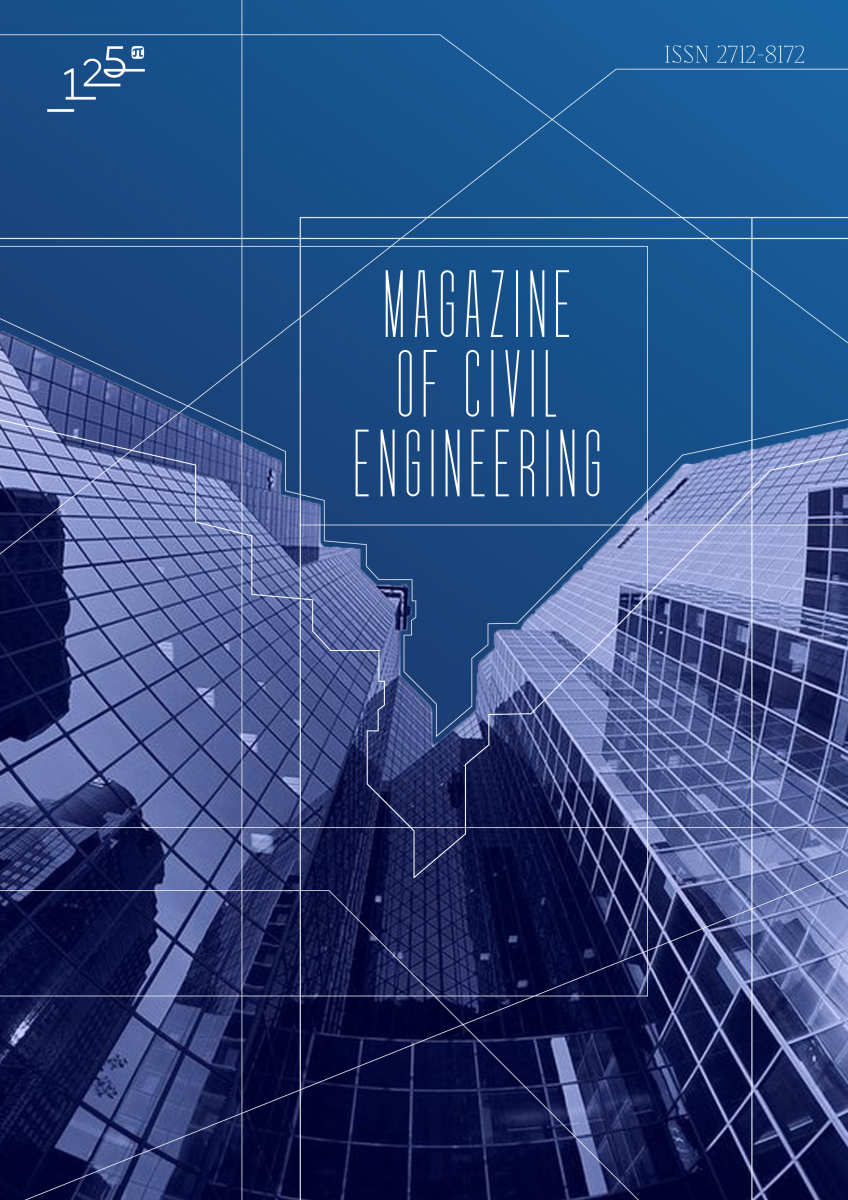Plastic shrinkage of concrete modified by metakaolin
The subject of research is concrete containing a polycarboxylate superplasticizer admixture and metakaolin. The effect of water-cement ratio, superplasticizer, and metakaolin on plastic shrinkage of cement paste was investigated. Two types of cement are also compared. One of them was alite-aluminate cement (cement A). Another one was belite-celite cement (cement B). If the water-cement ratio is increased, then the plastic shrinkage of samples with both cements develops more intensively and achieves higher values. However, the w/c ratio affects the shrinkage of the cement A more. For the first 8 hours, the cement A shrinkage is 1.71–5.21 mm/m at W/C = 0.2–0.35. For cement B, the corresponding values are 0.953–2.63 mm/m. The cement A's plastic shrinkage is 1.51–1.98 times higher than cement B's plastic shrinkage. If polycarboxylate superplasticizer content is increased, then the shrinkage of both cements increases significantly due to the release of part of physically bound water and its evaporation. The addition of the superplasticizer increases the shrinkage of the cement A by an average of 40 %, and the shrinkage of cement B by approximately twice. Simultaneously, the shrinkage of two cements becomes approximately equal due to the same rate of interaction of water with the cement, limited by the diffusion of water through the polycarboxylate adsorption film. Selective capacity of polycarboxylate concerning two types of cement is shown. The alite-aluminate cement gives the same shrinkage as the belite-celite cement, with a 1.89 times higher superplasticizer content. Replacing part of the cement by metakaolin reduces the initial shrinkage, however, not so significantly as the other two factors. If the metakaolin content in the binder is increased, then the shrinkage of both cements decreases. More noticeable is the effect of metakaolin on the cement A. The shrinkage of the cement B has not changed much.


